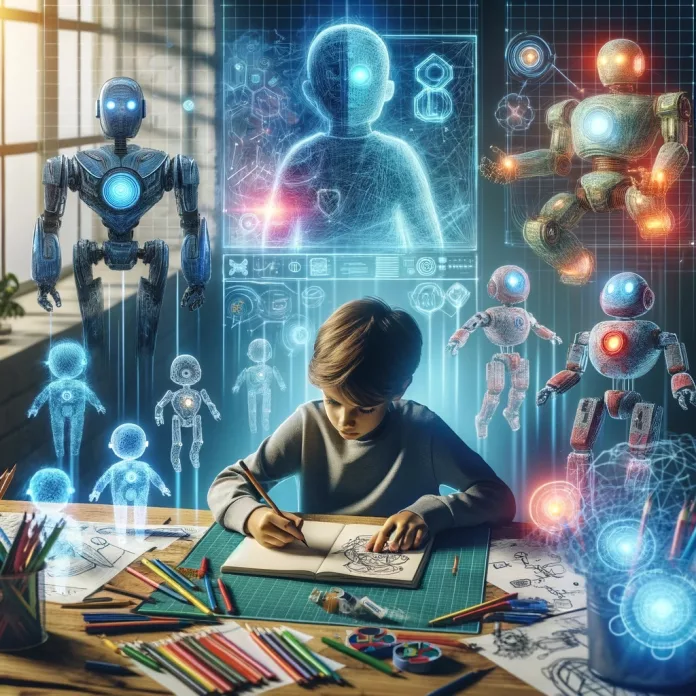The global development of artificial intelligence (AI) is vibrant and ever-evolving, with substantial investments bolstering its infrastructure and capabilities.
With our government pouring resources into AI research as well, asserting its ambition to be a global leader in the field, the fusion of cutting-edge technology and innovative design has never been more critical. This sets the stage for a bunch of interesting questions and explorations – one of them being: can the intuitive, inherent, and creative skills of children play a role in shaping the future of our AI?
Understanding Children’s Intuitive Skills
Our children are natural innovators. Their approach to problem-solving is often unencumbered by the constraints we as adults might feel, leading to fresh and creative solutions. “They have not yet been exposed to societal expectations; their creativity is less constrained. They have not been taught what is ‘possible’ or ‘impossible’ and are therefore more likely to imagine beyond conventional boundaries,” says Dennis Relojo-Howell, managing director of the psychology website Psychreg. He spoke to the used car dealership Big Motoring World in liaison with their design experiment of kids becoming car designers. A key takeaway from this study was the recognition that “children also have a natural inclination towards creativity because it allows them to express themselves and make sense of the world around them. They may use their creativity to explore and understand complex concepts, emotions, and ideas that they are not yet able to articulate verbally.”
Can Their Designs Be Integrated in AI?
Recognising this, there’s a growing interest in how these innate abilities can contribute to AI development – not only as something playful, but as a vital tool in understanding complex concepts and user-centric design. Children possess a unique design thinking traits characterised by directness and imaginative capabilities, which are inherently unfiltered and innovative. Their interactions with the world are not yet bound by the same logical constraints that adults often have, allowing them to approach problems with fresh perspectives and unexpected solutions. Incredibly beneficial attributes in AI development, where thinking outside conventional frameworks can lead to breakthroughs in user interface design and interactive technologies alike.
What are Ethical Considerations and Long-Term Impacts?
However, the ethical implications of involving children in AI development are significant. Concerns range from ensuring their safety and privacy to considering the implications of their contributions on technology that could have broader societal impacts. It is essential to develop frameworks that not only foster but also regulate the involvement of underage individuals in AI learning. Ensuring that their participation is safe, ethical and genuinely beneficial, paving the way for a future where artificial intelligence development is inclusive and considerate of diverse perspectives.
Integrating children’s unique perspectives could fundamentally transform the technology, making it not only more advanced but also more intuitive, utilising something we as adults have lost over time. If done right, it might ensure and create an important path to a strategy that ensures AI advancements benefit from the full spectrum of human ingenuity and perspective.



















